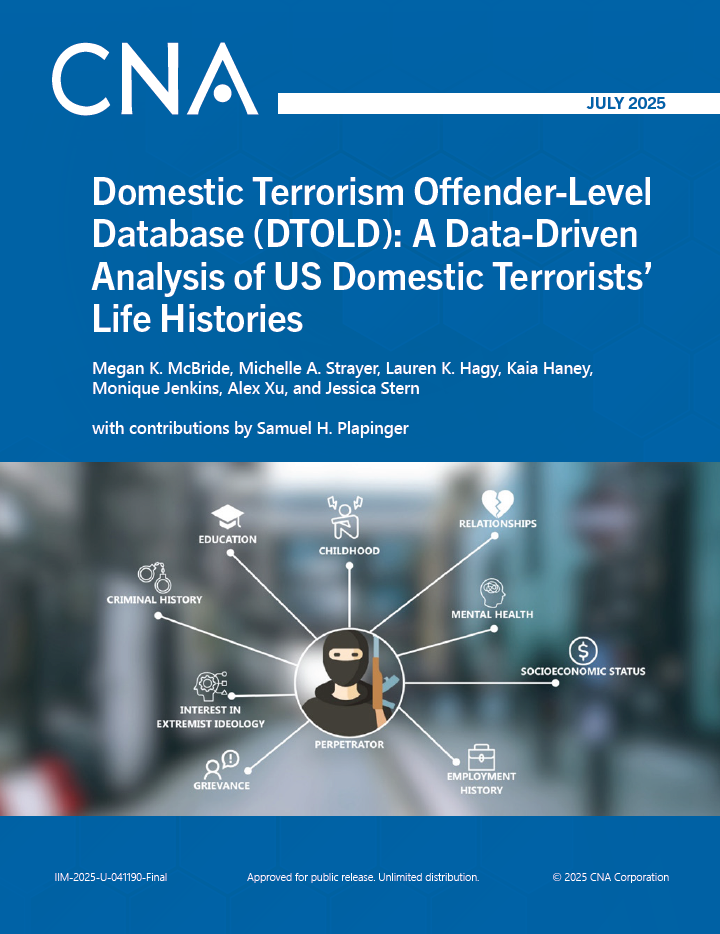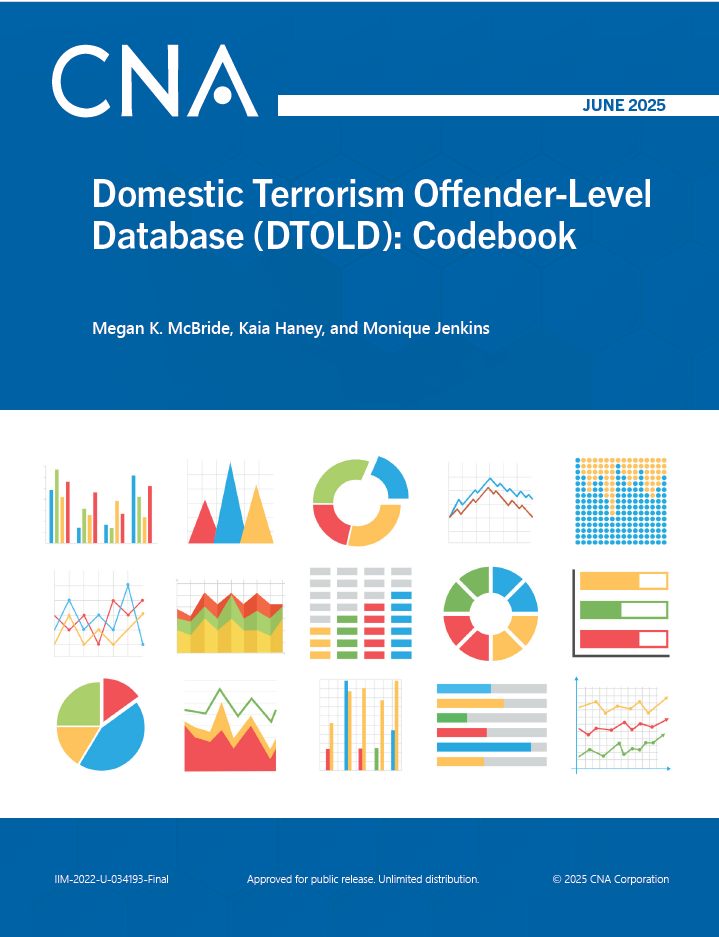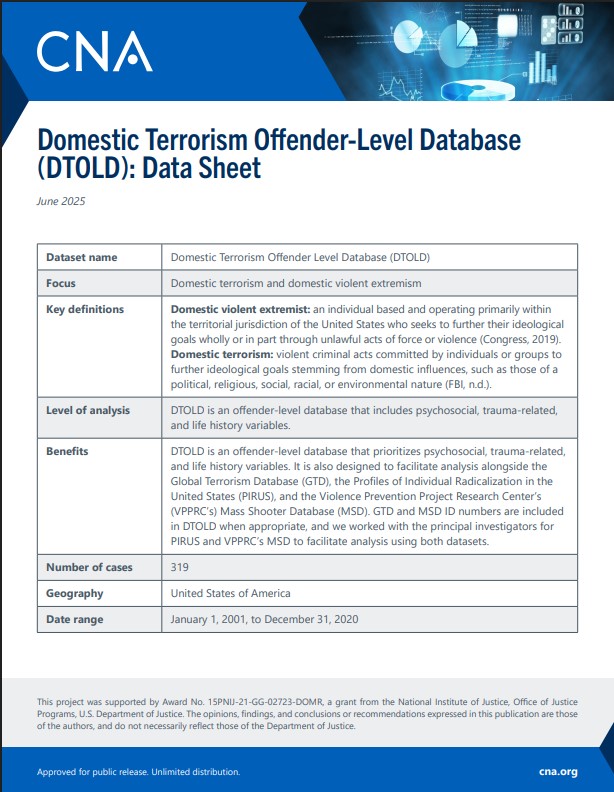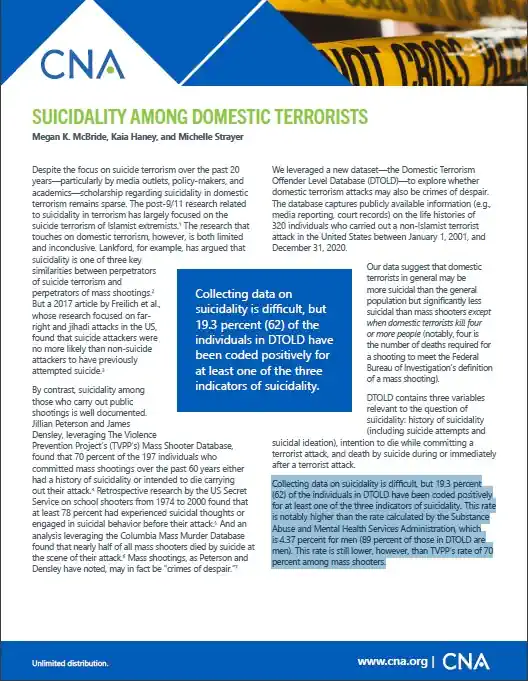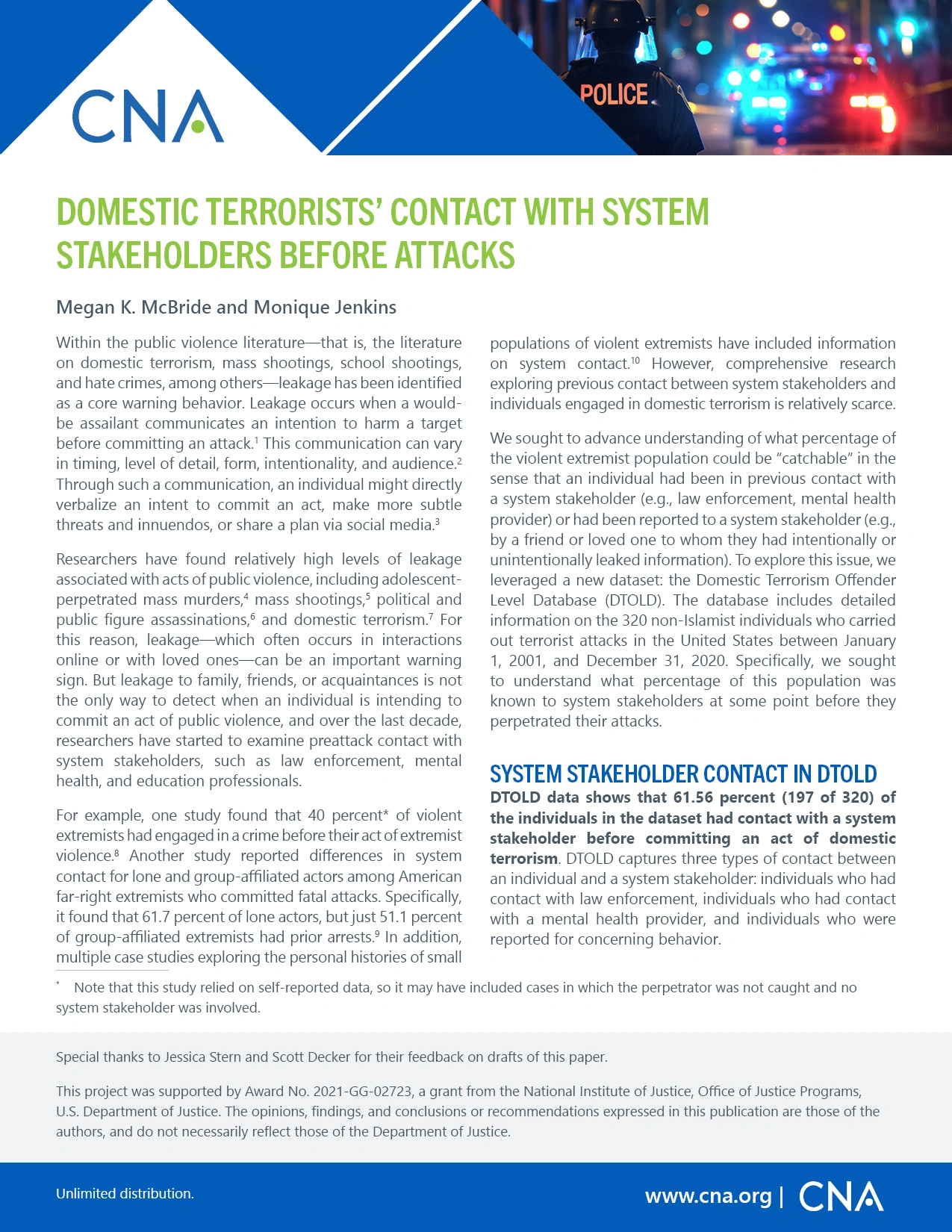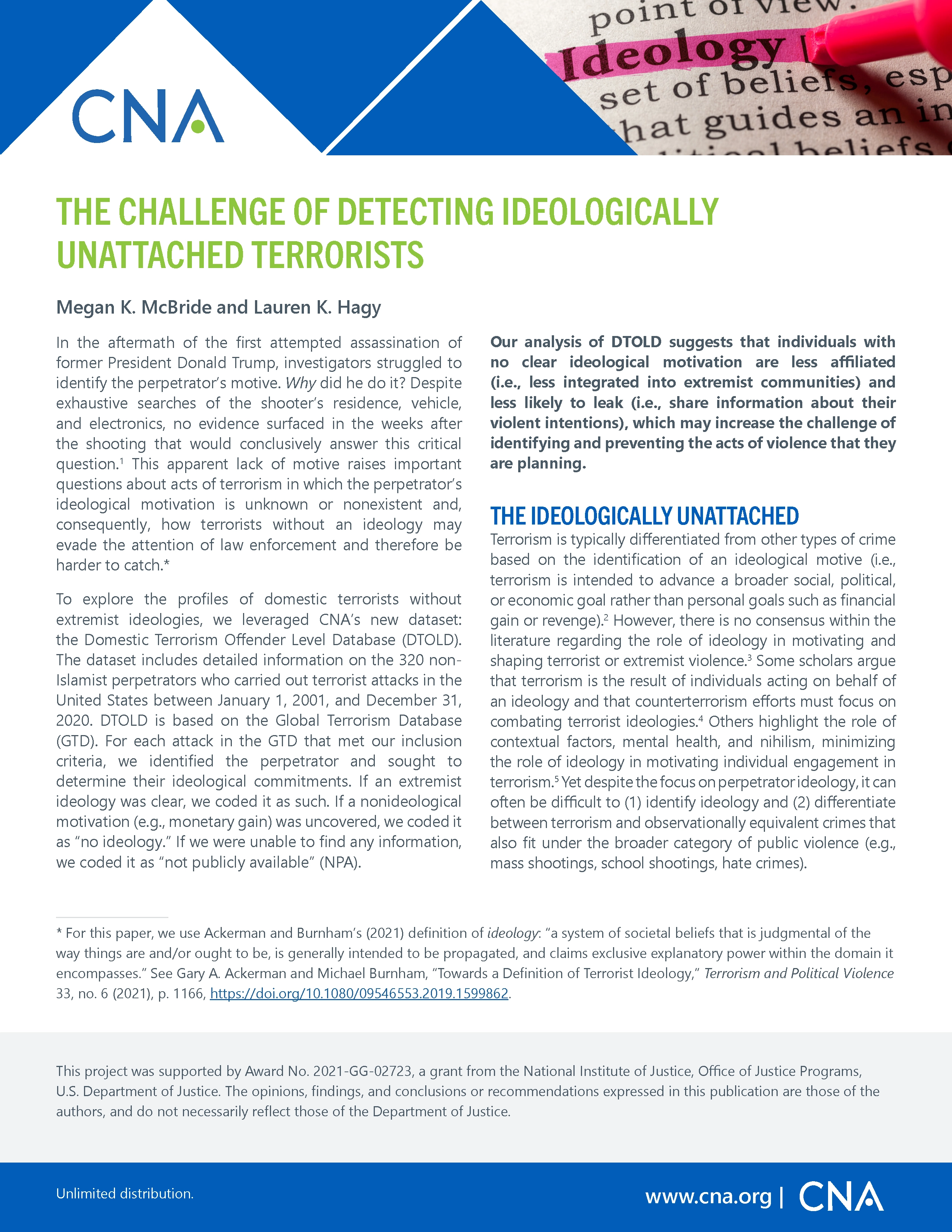Targeted Violence
Evidence-Based Approaches to Addressing Targeted Violence
Targeted violence is on the rise in the United States. Domestic terrorism, hate crimes, mass shootings, and school shootings were once considered relatively rare. But such targeted violence now occurs almost daily and threatens the safety and security of communities across America. CNA helps our sponsors and the public to better understand the nature and scope of this threat through analysis and program evaluation projects conducted in communities across the country. By leveraging expertise in domestic terrorism and targeted violence, CNA analysts are equipping practitioners with the knowledge and tools to combat targeted violence.
Recent CNA work on these topics includes:
- Developing and analyzing a new domestic terrorism offender-level database (DTOLD)
- Evaluating county-level threat assessment response capacity-building efforts
- Identifying regional gaps in terrorism intervention and response capabilities
- Developing a pilot training course on extremist recruitment efforts targeting law enforcement
- Identifying promising evidence-based approaches for preventing violent extremist behavior in the military
Domestic Terrorism Offender-Level Database (DTOLD)
DTOLD, developed by CNA with the support of the National Institute of Justice, is the first publicly available offender-level database that prioritizes psychosocial, trauma-related, and life history variables. These short reports discuss initial analytical findings from the database that are relevant for clinicians, probation officers, and other relevant stakeholders.
Learning from the Past
These reports examine the history of US counterterrorism efforts to identify lessons learned and strategies for responding to domestic terrorism today.
The DVERT Center
The DVERT Center, a national center of excellence housed within CNA, delivers timely, evidence-based findings for those at the front lines of preventing targeted violence and violent extremism. We collaborate with a wide range of practitioners to help them intervene as early as possible to prevent acts of violence.
Behavioral Threat Assessment and Management (BTAM)
This series of short, practitioner-focused reports discusses analytical findings from CNA’s evaluation of a county’s capacity-building efforts to address targeted violence, focusing on implications for local policymakers.
